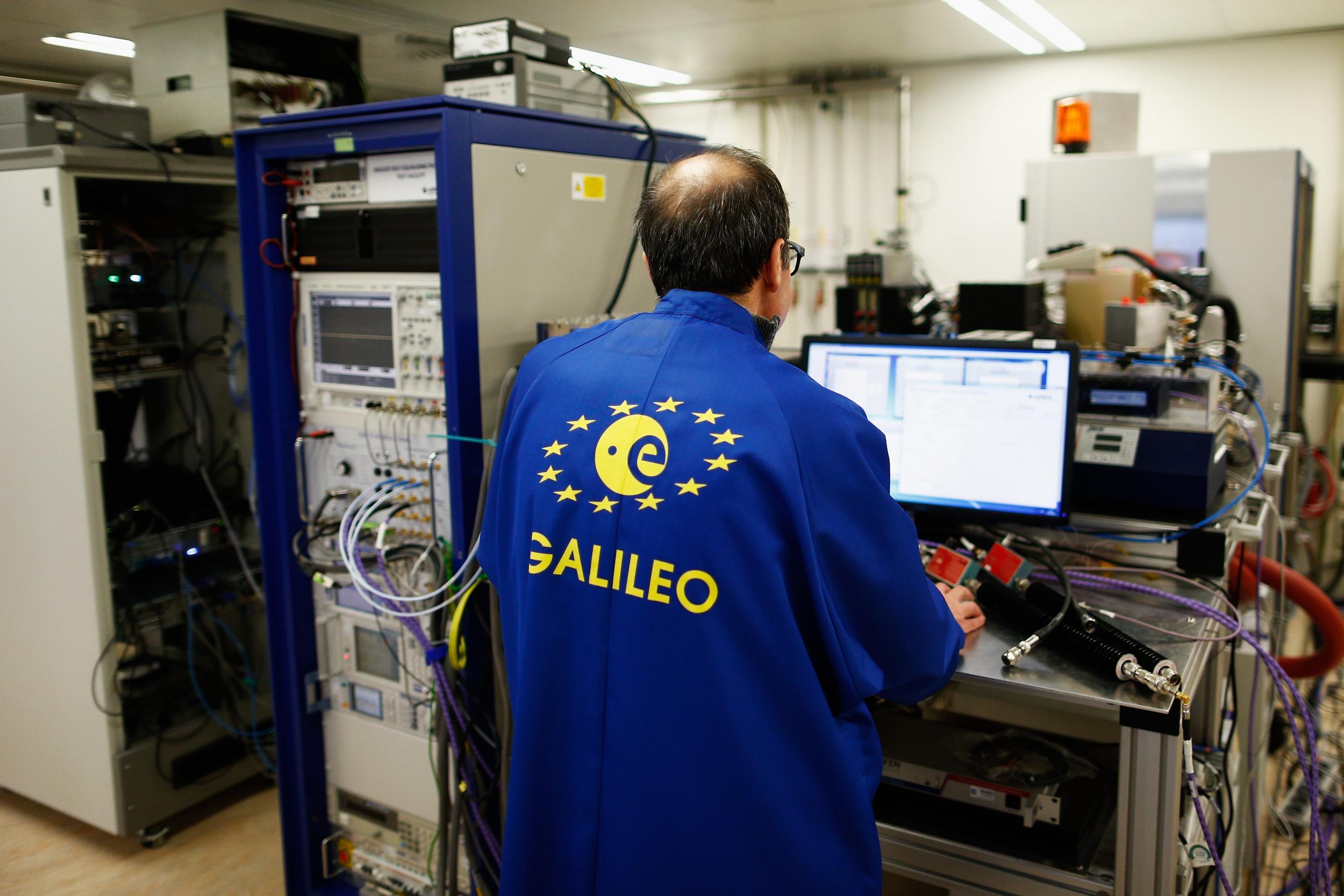UK threatens less security cooperation with EU if locked out of Galileo satellite system after Brexit
UK negotiators say continued full participation in Galieo is a 'test case' for close cooperation on security

Your support helps us to tell the story
From reproductive rights to climate change to Big Tech, The Independent is on the ground when the story is developing. Whether it's investigating the financials of Elon Musk's pro-Trump PAC or producing our latest documentary, 'The A Word', which shines a light on the American women fighting for reproductive rights, we know how important it is to parse out the facts from the messaging.
At such a critical moment in US history, we need reporters on the ground. Your donation allows us to keep sending journalists to speak to both sides of the story.
The Independent is trusted by Americans across the entire political spectrum. And unlike many other quality news outlets, we choose not to lock Americans out of our reporting and analysis with paywalls. We believe quality journalism should be available to everyone, paid for by those who can afford it.
Your support makes all the difference.The British government has threatened weaker security cooperation and intelligence sharing with the EU after Brexit if the UK is excluded from the Galileo satellite navigation system once it leaves the bloc.
A presentation drawn up by the British negotiating team and shown to EU officials warns that continued access to the system is a “test case” in the eyes of the UK for how closely Britain and the EU cooperate on security matters after they leave.
The move is likely to enrage Brussels, where senior figures have previously accused the UK of trying to blackmail the EU by using its strengths in intelligence and security as a bargaining chip in talks.
The Galileo system is an EU-developed and built equivalent to GPS, which is operated by the US military. The European system has a number of technical advantages over the existing generation of GPS and would be operated independently by Europe without reliance on the US.
The presentation drawn up by British negotiators outlines how the UK and EU could build a strong security partnership after Brexit, but adds: “The arrangements for any UK cooperation on Galileo are an important test case of the depth of operational cooperation and information sharing envisaged under the security partnership.”
British officials said it would be harder for the UK to work closely with the EU on security without full participation in the scheme.
The UK negotiators said they want “continued UK participation in the development and operation of the open signal” of the system despite the UK leaving the bloc, as well as access to the private regulated signal for British armed forces.
They have also demanded that British defence firms must be allowed to bid for contracts on the EU’s secure network on the same “fair” basis as EU firms despite Britain’s departure.
The European Commission has already moved to relocate a backup control centre for Galileo from Britain because of Brexit, with operations underway to relocate it to Spain.
Brussels has also moved to lock Britain’s defence industry out of bidding for contracts related to the €10bn (£8.8bn) programme – which prompted the defence secretary, Gavin Williamson, to warn that the move would be “detrimental to European security”.
The UK presentation said Britain will move to develop its own satellite system to compete with Galileo if it doesn’t get full continued participation in the project.
David Davis, the Brexit secretary, last year denied the UK was threatening the EU over defence and security to get a better deal, after Theresa May said no deal would be bad for security. “This is not a threat. This is a statement of the fact that this will be harmful for both of us if we don’t get a deal,” he said at the time.
The first Galileo satellite was launched in 2005 and the system is expected to be completed by 2020, with early operational capability planned for later this year and full capability by 2019. Its public system will be accurate to one metre and its encrypted version will be accurate to one centimetre.
The Secretary of State for Exiting the European Union David Davis said: “The UK wants to continue to make a significant contribution to European security through a new Security Partnership after we leave the EU. We would all benefit from the partnership we are proposing.
“Our negotiating partners have a choice: they can treat us as a third country according to existing precedents, creating something that falls well short of our existing relationship, or they can take a more adaptable approach in which we jointly deliver the operational capability that we need to tackle the ever-evolving threats to our shared security.
“To protect our citizens’ security, we need to look beyond existing precedents and find a solution that allows us to continue to work together. There is no legal or operational reason why such an agreement could not be reached.”
Join our commenting forum
Join thought-provoking conversations, follow other Independent readers and see their replies
Comments